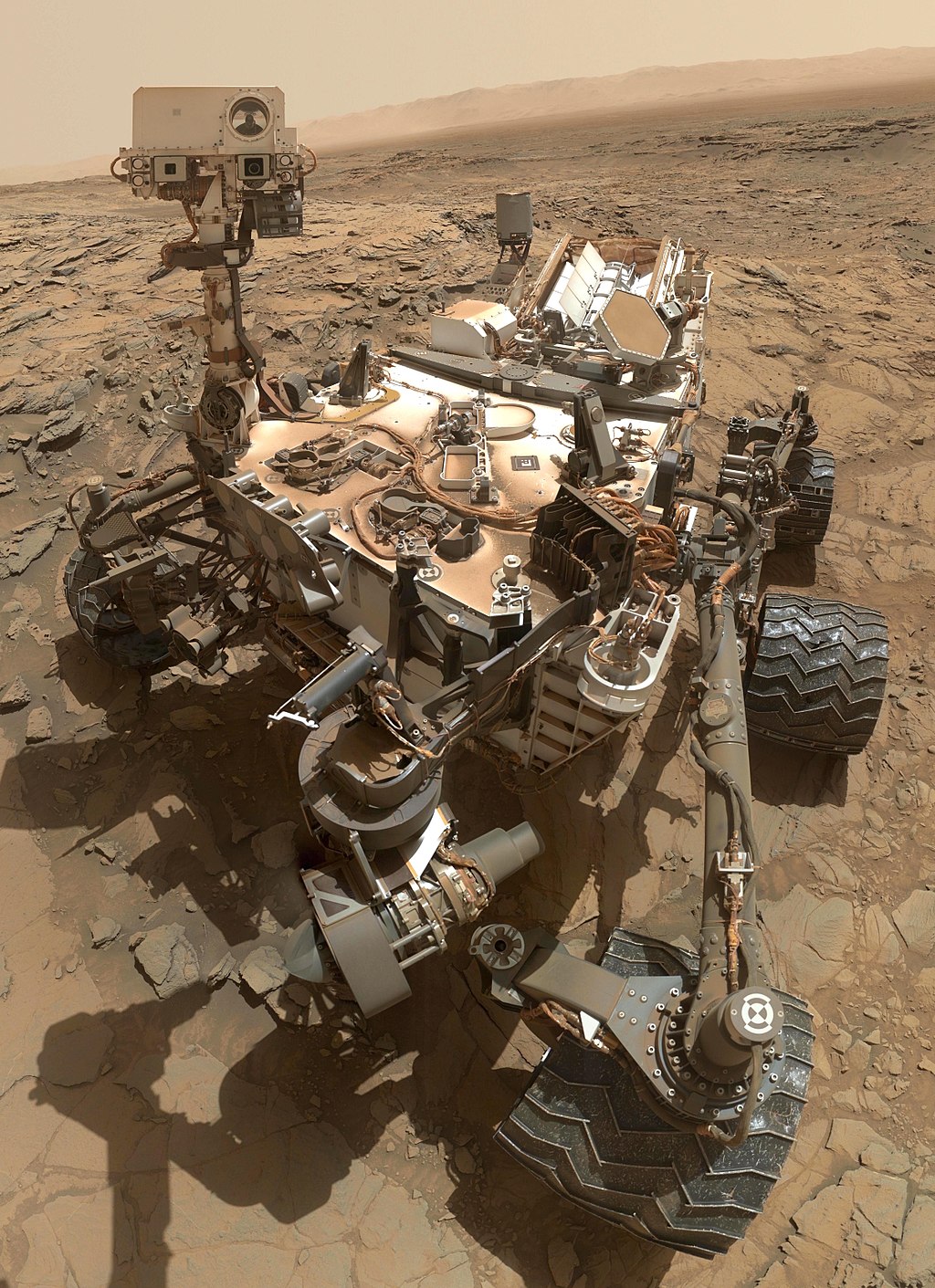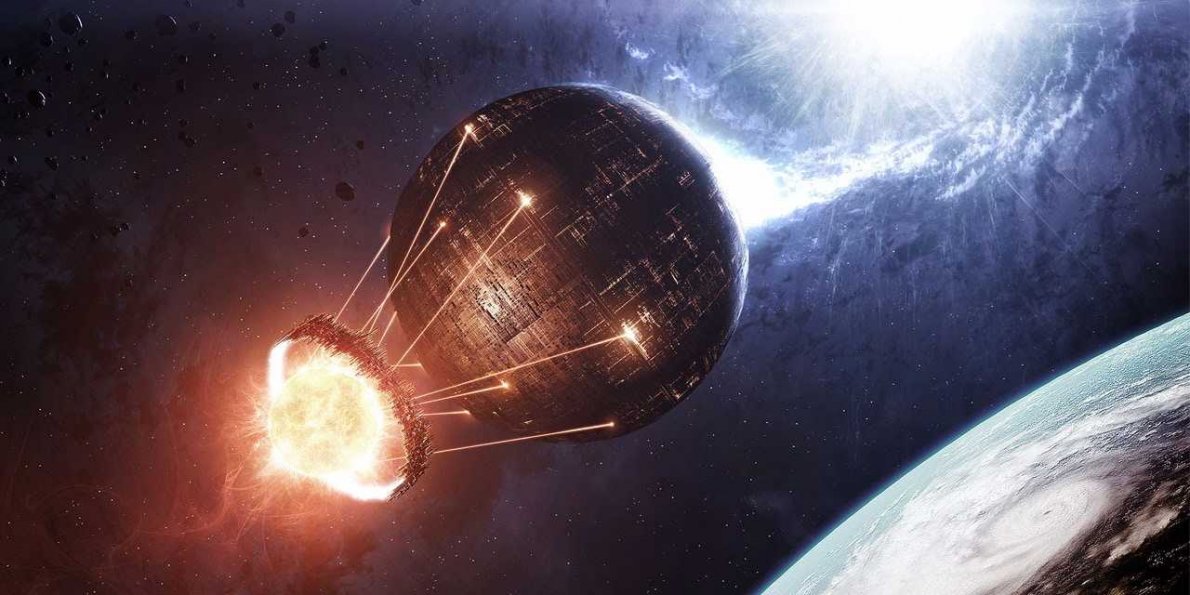Posts Tagged ‘space news’
Build Your Own Mars Curiosity Rover Robot

ZDNet reports that NASA‘s Jet Propulsion Laboratory (JPL) has released plans for folks to make their own mini version of the Mars Curiosity Rover.
JPL has released designs and instructions on the now Microsoft-owned GitHub for building the mini rover that presumably will be mostly Earth-bound, rather than roaming over Mars or any other planet, unless you’re buddies with Elon Musk.
…
JPL released the instruction kit to show that it actually does take a rocket scientist to build one of these, but that those skills can also be learned by hobbyists and students.
“One would rightfully assume it takes expertise in mechanical engineering, software development, and electronics to even begin to construct such a complex robot,” JPL says in its announcement.
“Now students, hobbyists, and enthusiasts can learn about these skills and get a taste of what it is like to construct such a rover using plans and instructions from JPL’s Open Source Rover Project.”
In other words, this isn’t one of those tin can robot kits, because it’s from, like, NASA. But even if it isn’t something you can knock out in an hour, it’s still pretty cool of them to release it to the wild.

Also cool: the project is Raspberry Pi-based.
It won’t be cheap – the cost should be around $2500. But remember, we’re talking about a mini Mars Rover. You thought maybe it should be under ten dollars?
Source: ZDNet
More Possible Evidence Of Life On Other Planets
Here’s more possible evidence of life on other planets. Space news!
(Note: the above photo isn’t the planet in question, but it’s a cool picture.)
From CNN:
NASA has new evidence that the most likely places to find life beyond Earth are Jupiter’s moon Europa or Saturn’s moon Enceladus. Enceladus particularly has almost all of the key ingredients for life as we know it, researchers said.
New observations of these active ocean worlds in our solar system have been captured by two NASA missions and were presented in two separate studies in an announcement at NASA HQ in Washington.
Related articles (Note: These are offsite links; DaddyTips takes no responsibility for outside content.)
7 Earth-Sized Planets Discovered
Ohhh snap. Check out this space news (via CNN):

Size comparison of the four terrestrial planets Mercury, Venus, Earth and Mars and the terrestrial dwarf planet Ceres. (Photo credit: Wikipedia)
(NOTE: the photo above does not depict the planets in question. It’s just a cool photo of planets.)
Astronomers have found at least seven Earth-like planets orbiting the same star 40 light-years away, according to a study published Wednesday in the journal Nature. The findings were also announced at a news conference at NASA Headquarters in Washington.
This discovery outside of our solar system is rare because the planets have the winning combination of being similar in size to Earth and being all temperate, meaning they could have water on their surface and potentially support life.
The seven exoplanets were all found in tight formation around an ultracool dwarf star called TRAPPIST-1. Estimates of their mass also indicate that they are rocky planets, rather than being gaseous like Jupiter.
“Ultracool dwarf star” is my favorite phrase of the day.
Source: CNN
Alien Megastructure WHAAAT?
Scientists have discovered an “alien megastructure” in space.
That’s less cool than it sounds. Despite being SUPER COOL, this picture doesn’t help.
The video over at Business Insider (link) is very well made and definitely gets the point across in a short amount of time. That’s useful. And I’ll admit that the picture of what appears to be the Death Star got me to click.
BUT. Let’s calm down for a second. We don’t really know what this space thing is. And to be fair to Business Insider, the phrase “The peculiar dipping events in the disk-bearing young-stellar object EPIC 204278916” are not very exciting when you have no idea what they mean.
Space news is cool. We’ve discussed this. So if it takes using Star Wars style imagery to draw us in… well, I can live with that. I just hope our alien overlords are nice.
I kid. Sort of.
No one knows why these stars are acting so peculiar.
Source: New alien megastructure star discovered – Business Insider
Related articles (Note: These are offsite links; DaddyTips takes no responsibility for outside content.)
Earth-like Planet Found?
Exciting space news, people!
(CNN) In a discovery that has been years in the making, researchers have confirmed the existence of a rocky planet named Proxima b orbiting Proxima Centauri, the closest star to our sun, according to a new study. It is the closest exoplanet to us in the universe.
Cool stuff, right? It’s close to our sun so the whole “we’ll get superpowers because of a red sun” isn’t going to happen. Still, it’d be exciting if there’s life out there. See the CNN link below.
Source: Closest rocky planet to our solar system found – CNN.com






















